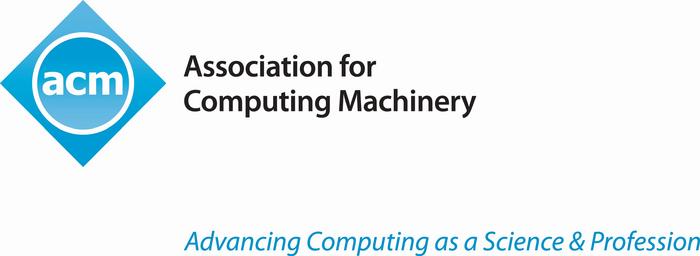ACM, the Association for Computing Machinery, has announced the publication of the first issue of the ACM Journal on Responsible Computing (JRC). The new journal publishes high-quality original research at the intersection of computing, ethics, information, law, policy, responsible innovation, and social responsibility from a wide range of convergent, interdisciplinary, multidisciplinary, and transdisciplinary perspectives.

Credit: Association for Computing Machinery
ACM, the Association for Computing Machinery, has announced the publication of the first issue of the ACM Journal on Responsible Computing (JRC). The new journal publishes high-quality original research at the intersection of computing, ethics, information, law, policy, responsible innovation, and social responsibility from a wide range of convergent, interdisciplinary, multidisciplinary, and transdisciplinary perspectives.
Topics addressed in JRC include values and ethics in the design and evaluation of computing and information technology; ethical and societal implications of computing and information technology; public interest technology (information technology that serves the public interest); fairness, accountability, and transparency in computing and information technology; computing, information, health, and wellbeing; approaches to addressing threats such as adversarial machine learning, misinformation, and disinformation; and examples of how computing and information can be leveraged to achieve outcomes that benefit humanity.
“Computing now impacts so many areas of our lives that a journal devoted to exploring its ethical and societal implications is essential,” explained JRC EIC Kenneth R. Fleishmann, Professor, University of Texas at Austin. “Computing professionals must be at the forefront of raising questions and conducting research about how the technologies we help develop can best serve humanity in a responsible way. Our vision for JRC is that it will be a home for outstanding research and a valued resource for everyone working in our field.”
Articles in the inaugural issues include:
- “Data Statements: From Technical Concept to Community Practice,” by Angelina McMillan-Major, Emily M. Bender, and Batya Friedman
- “Algorithmic Harms in Child Welfare: Uncertainties in Practice, Organization, and Street-level Decision-making,” by Devansh Saxena and Shion Guha
- “Between Privacy and Utility: On Differential Privacy in Theory and Practice,” by Jeremy Seeman and Daniel Susser
- “Tragedy of the Commons in Crowd Work-Based Research,” by Huichuan Xia
- “‘It’s Everybody’s Role to Speak Up…But Not Everyone Will’: Understanding AI Professionals’ Perceptions of Accountability for AI Bias Mitigation,” by Caitlin M. Lancaster, Kelsea Schulenberg, Christopher Flathmann, Nathan J. McNeese, and Guo Freeman
- “Measuring and Mitigating Group Inequalities In Resource Allocation,” by Arya Farahi, Angela Ting, and Yingchen Ma
- “Which Skin Tone Measures Are the Most Inclusive? An Investigation of Skin Tone Measures for Artificial Intelligence,” by Courtney M. Heldreth, Ellis P. Monk, Alan T. Clark, Candice Schumann, Xango Eyee, and Susanna Ricco
- “Transparency-Check: An Instrument for the Study and Design of Transparency in AI-based Personalization Systems,” by Laura Schelenz, Avi Segal, Oduma Adelio, and Kobi Gal
- “Against Predictive Optimization: On the Legitimacy of Decision-making Algorithms That Optimize Predictive Accuracy,” by Angelina Wang, Sayash Kapoor, Solon Barocas, and Arvind Narayanan
- “Data Refusal from Below: A Framework for Understanding, Evaluating, and Envisioning Refusal as Design,” by Jonathan Zong and J. Nathan Matias
An important goal of the JRC is to encourage submissions from authors who live in the Global South, authors who hail from groups currently underrepresented in computing and information, and/or authors who live in communities adversely affected by inequities in computing technology.
In addition to EiC Kenneth R. Fleischmann, the JRC editorial board consists of a 10-member advisory board, five Senior Associate Editors and 28 Associate Editors from Australia, Austria, Brazil, Canada, China, Germany, Ireland, Italy, Japan, the Republic of Korea, the Netherlands, Senegal, Sweden, the United Kingdom, and the United States.
ACM publishes more than 70 scholarly peer-reviewed journals in dozens of computing and information technology disciplines. Available online through the ACM Digital Library, ACM’s high-impact journals constitute a vast and comprehensive archive of computing innovation, covering emerging and established computing research for both practical and theoretical applications.
About ACM
ACM, the Association for Computing Machinery is the world’s largest educational and scientific computing society, uniting computing educators, researchers, and professionals to inspire dialogue, share resources, and address the field’s challenges. ACM strengthens the computing profession’s collective voice through strong leadership, promotion of the highest standards, and recognition of technical excellence. ACM supports the professional growth of its members by providing opportunities for life-long learning, career development, and professional networking.
###



